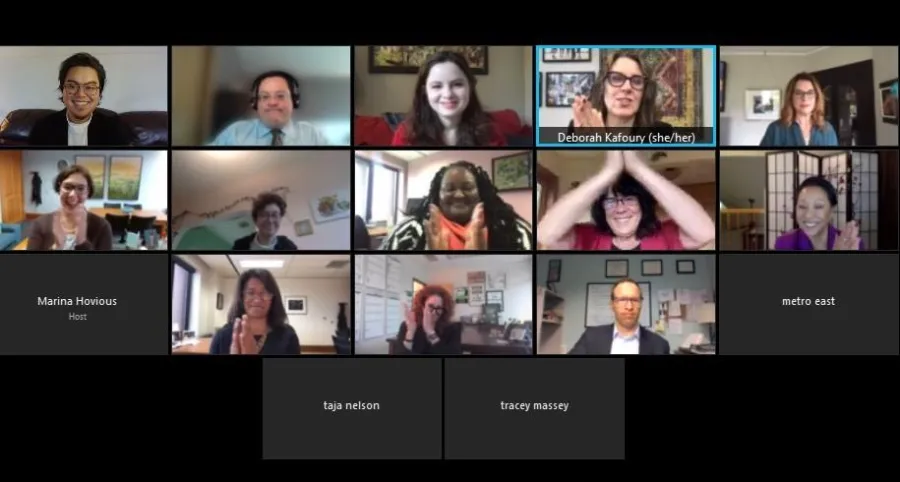Labor harmony in place for behavioral health workers in Oregon’s Multnomah County

When Brandy Fishback, a behavioral health case manager, and her co-workers decided to form a union with Oregon AFSCME Council 75 earlier this year, they hoped to work with their employer to fix safety issues and lower a nearly 20% turnover rate that was hurting client care.
Instead, Central City Concern-Blackburn responded with an anti-union campaign that not only led to workers losing their election, but also sowed confusion and division among staff, worsened working conditions and disrupted client care.
“We sought union representation after experiencing serious safety issues due to lack of oversight and support, lack of safety protocol and adequate training, and low staffing caused by constant turnover,” said Fishback.
But things have changed now. When behavioral health workers in Oregon’s Multnomah County form a union, they will not be subjected to such interference because the Board of County Commissioners unanimously adopted a labor harmony agreement last month.
“This resolution and the executive rule are necessary in ensuring that workers who wish to have a voice in their workplace have a path to form a union without fear of intimidation and bullying from their employer,” said Stacy Chamberlain, executive director of Oregon AFSCME and an AFSCME vice president.
Multnomah County, home to Portland, first began exploring a labor harmony agreement in 2017 after AFSCME released a report entitled “United We Heal,” which advocated for improved conditions for the behavioral health workforce. Oregon AFSCME requested that the county pursue such an agreement that would apply to the behavioral health workforce.
The labor harmony agreement has three goals: ensure continuity of services for clients; acknowledge that those services require a stable workforce; and adhere to federal, state and local requirements regarding labor negotiations, including the National Labor Relations Act.
The agreement requires contractors to certify their commitment to labor harmony and a negotiated project labor agreement (PLA). This PLA – between contractors and workers – aims to minimize service disruptions, work stoppages and other economic issues interfering with operating services. If a PLA is not reached within 60 days, mediation and arbitration are required.
“This is a real opportunity to support the safety, the training, the equity, better pay and benefits for our workforce,” said Multnomah County Commissioner Sharon Meieran. “They are the foundation on which we can build the services, build the community that we need to see and if we’re not supporting our workforce, how can we support our clients and those that we serve?”
Years of hard work have paid off for behavioral health workers who are building a modern system of care in Oregon. And it is the latest example of behavioral health workers winning labor peace legislation.
And it gives dedicated workers like Fishback hope that the attacks they faced will soon become ancient history.
“It’s been over four months and management has still not delivered on the promises they made during our union campaign. Safety issues have not been addressed, turnover is still high and we don’t have a voice as front-line staff,” said Fishback. “If Multnomah County had a labor peace agreement in place, management would not have been able to use their resources to actively fight us, and instead would be able to focus on creating solutions with us.”
